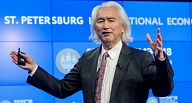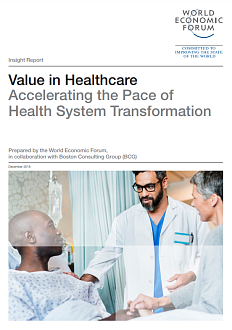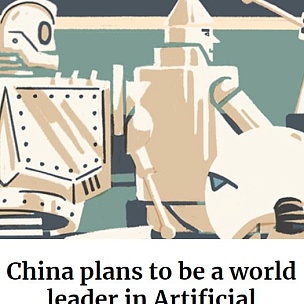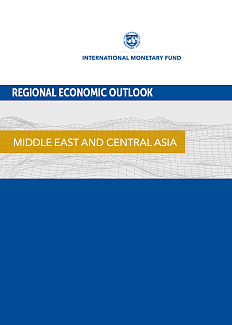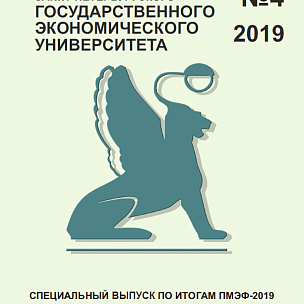Michio Kaku is a professor of physics, co-founder of string field theory and worldŌĆæfamous futurist. He has said that one day humans will achieve immortality, invent the time machine, and be able to teleport themselves. Science fiction? Perhaps for now, but these are views backed up by fundamental scientific knowledge. The renowned scientist was a guest at the St. Petersburg International Economic Forum in 2018, where he spoke at the session «The Future of the Mind. Michio Kaku» on the following topics:
Overcoming nature
The natural state of a human is hunger and life of 30 years. In its natural state, human life is rather short. How far do we want to walk away from this natural state?
The internet and teleportation
The Internet is going to change everything in the coming decades. It will eventually become a ’brainnet’. This is going to change entertainment, education, politics and our way of life, as soon as we are able to mentally communicate with the rest of the world. And then I go 500 years into the future, where we might even have perhaps time machines and teleportation, things right out of science fiction.
People and robots
Certain jobs will be eliminated. The jobs to be eliminated first are the repetitive jobs that require the same motions over and over again. Second, middlemen jobs such as brokers and low level accountants. But a lawyer cannot be replaced. So there are limitations to artificial intelligence. The first one, as I said, is interacting with humans, any jobs that require interaction with humans, where it is important to convey emotions, friendship. Second, pattern recognition, which the robots are very bad at. <...> In the future garbage men, plumbers and policemen will have jobs. And the second group is intellectual capital that possesses experience, know-how, creativity.
The decline of Silicon Valley
The age of silicone is gradually coming to an end, Silicone Valley has its days numbered. The principle of the computer revolution is simple: you get a template, shoot in ultraviolet radiation on a piece of silicone, and — boom —we have a chip. In the end, year after year the number of transistors on the crystal doubles, and the distance between them shrinks. Eventually, the spacing between these layers becomes about five atoms across.
Quantum technologies
The next step is molecular transistors and atomic transistors. <...> You can do a lot more computation on a quantum computer. I wouldn’t be surprised if all the secret services of the world are trying to learn quantum computers, because they can crack any known computer code almost for free.
Defeating cancer
Today we can put a chip in the computer inside a tablet that you can swallow like an aspirin pill. It can diagnose. This gives a new meaning to the expression «Intel Inside». <...> By analysing blood we can now detect one cancer cell in the blood out of a billion. And this technology is going to be commercialized this year. These are called Liquid Biopsies. The cells can be identified years before a tumour forms. In fact, in the future the word ‘tumour’ may disappear from your language.
Artificial organs
Organs can gradually be replaced. Today we can replace skin, bone, cartilage, noses, ears, blood vessels, heart valves, bladders, also wind pipes. And the next organ to be grown is the liver.
Recreating the brain
There were a few major projects in science: the Manhattan Project, which gave us nuclear energy; in the 80ies it was a genome project, which deciphered the human genome; many people today think that the third great initiative called a Human Connectome Project. The Connectome Project is to map the entire brain. And already, using the MRI scans, looking at the blood flow in the human brain we’ve been able to prove or disprove many theories of the brain.
Technology and art
We can now take the brain and pictorialize what it is thinking about, and have a 3D printer print it out. Every new technology gives us a new art form.
Immortality
There was a man who kicked the football initiating the World Cup games in Brazil. That man was totally paralyzed, he was a quadriplegic. At Duke University they put a chip in his brain, connected the chip to a complete exoskeleton, and he became like superman. So we are talking about a new era in brain-computer interface. <...> If we can digitalize the human brain we have a chance for digital immortality.
You can watch a full recording of the session here:
https://roscongress.org/en/sessions/budushchee-razuma-mitio-kaku/translation/


